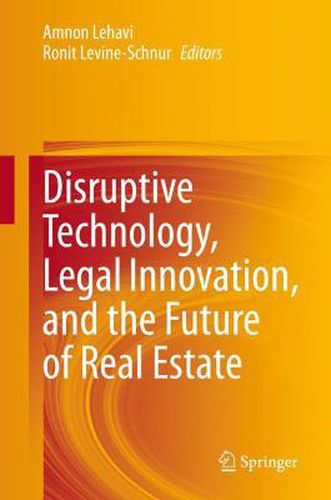Readings Newsletter
Become a Readings Member to make your shopping experience even easier.
Sign in or sign up for free!
You’re not far away from qualifying for FREE standard shipping within Australia
You’ve qualified for FREE standard shipping within Australia
The cart is loading…






This title is printed to order. This book may have been self-published. If so, we cannot guarantee the quality of the content. In the main most books will have gone through the editing process however some may not. We therefore suggest that you be aware of this before ordering this book. If in doubt check either the author or publisher’s details as we are unable to accept any returns unless they are faulty. Please contact us if you have any questions.
This book addresses challenges that new technologies and the big data revolution pose to existing regulatory and legal frameworks. The volume discusses issues such as blockchain and its implications for property transactions and taxes, three (or four) dimensional title registration, land use and urban planning in the age of big data, and the future of property rights in light of these changes. The book brings together an interdisciplinary collection of chapters that revolve around the potential influence of disruptive technologies on existing legal norms and the future development of real estate markets.
The book is divided into five parts. Part I presents a survey of the current available research on blockchain and real estate. Part II provides a background on property law for the volume, grounding it in fundamental theory. Part III discusses the changing landscapes of property rights while Part IV debates the potential effects of blockchain on land registration. Finally the book concludes with Part V, which is devoted to new technological applications relevant to real estate.
Providing an interdisciplinary perspective on emerging technologies that have the potential to disrupt the real estate industry and the regulation of it, this book will appeal to a broad audience, consisting of scholars, policy-makers, practitioners, and students, interested in real estate, law, economics, blockchain, and technology policy.
$9.00 standard shipping within Australia
FREE standard shipping within Australia for orders over $100.00
Express & International shipping calculated at checkout
This title is printed to order. This book may have been self-published. If so, we cannot guarantee the quality of the content. In the main most books will have gone through the editing process however some may not. We therefore suggest that you be aware of this before ordering this book. If in doubt check either the author or publisher’s details as we are unable to accept any returns unless they are faulty. Please contact us if you have any questions.
This book addresses challenges that new technologies and the big data revolution pose to existing regulatory and legal frameworks. The volume discusses issues such as blockchain and its implications for property transactions and taxes, three (or four) dimensional title registration, land use and urban planning in the age of big data, and the future of property rights in light of these changes. The book brings together an interdisciplinary collection of chapters that revolve around the potential influence of disruptive technologies on existing legal norms and the future development of real estate markets.
The book is divided into five parts. Part I presents a survey of the current available research on blockchain and real estate. Part II provides a background on property law for the volume, grounding it in fundamental theory. Part III discusses the changing landscapes of property rights while Part IV debates the potential effects of blockchain on land registration. Finally the book concludes with Part V, which is devoted to new technological applications relevant to real estate.
Providing an interdisciplinary perspective on emerging technologies that have the potential to disrupt the real estate industry and the regulation of it, this book will appeal to a broad audience, consisting of scholars, policy-makers, practitioners, and students, interested in real estate, law, economics, blockchain, and technology policy.